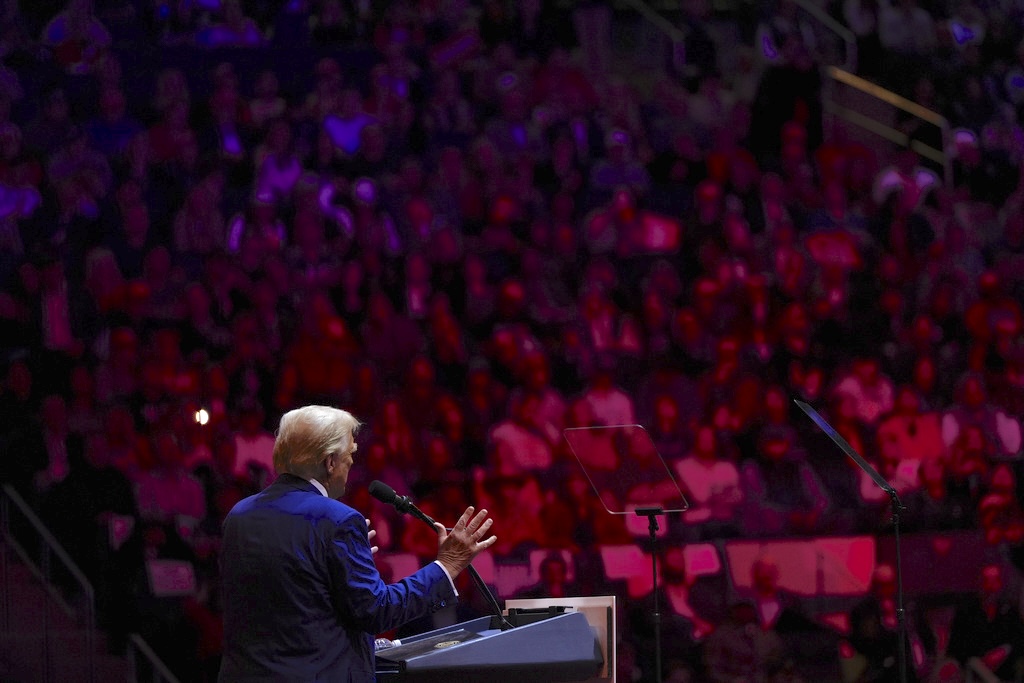
Very little seems certain regarding Election Day 2024. Speculation over whether polls will be biased — and, if so, towards which party — has flooded commentary for months. In The New York Times, Nate Cohn noted that “even a modest error in the polls could yield a very different result” and that either Donald Trump or Kamala Harris could decisively win the presidency. The partisan balance of Congress also remains blurry, along with a tremendous number of competitive state and local elections.
Despite its unpredictability, one thing is certain about the 2024 election: its result will be fairly undemocratic. The Electoral College and gerrymandered House districts are the most obvious examples of institutions that weaken America’s democracy.
A Republican presidential candidate has not garnered more than fifty percent of the popular vote since 2004 — and Trump only received 46 and 47 percent of the popular vote in 2016 and 2020, respectively. Without even considering polling data, it is very unlikely that Trump could win a majority of the popular vote. The Electoral College, with its appropriation of votes based on state-by-state results, is the only reason the 2024 presidential election is as competitive as it is.
Somewhat similarly, legislative and legal battles over redistricting seem to have a larger impact on the House of Representative than actual campaigns. Recent court decisions ordering Alabama and Louisiana to create new majority-Black congressional districts will benefit the Democrats, while Republicans are aided by the North Carolina Supreme Court allowing the state to adopt a less balanced map. These instances of redistricting will have a far greater impact on control of Congress than the elections themselves.
Both of these practices — partisan gerrymandering and the use of electoral votes — have been explicitly criticized by Democrats, but they are not the only flaws in our political system or impediments to the Democratic Party’s electoral success. The Senate, with its unproportional means of allocating representation and powerful filibuster requiring a 60-vote threshold for most legislation, is arguably a larger barrier to Democrats.
Even so, Democrats cannot simply focus on what would benefit them politically in the short-term. Democratic politicians seem to be far too focused on their immediate political reality, without thinking of the system’s long term success. Harris and others have long argued that Trump is a threat to democracy, ignoring that he is merely a symptom of a broken political system. He is not the problem.
Defeating Trump would not fix the antiquated system that allowed for his rise to prominence — a system that leaves Americans feeling unheard and disaffected. Many Americans feel disconnected from their elected representatives and believe they cannot influence government policymaking. A constrictive two-party system, in which most Americans are unsatisfied with both parties, made Trump’s unique brand and rhetoric seem all the more appealing.
Democrat-supported reforms such as requiring fair legislative maps and abolishing the electoral college may help to correct America’s undemocratic system. Other reforms like ranked-choice voting and jungle primaries may also help, both of which are being voted on by several states in ballot measures this election. These changes could make voting more impactful and give voters more choices.
Reforms, however, must go beyond our electoral processes. Changing the way we elect our representatives will not automatically reconnect them with their constituents. Deliberative democracy initiatives that facilitate meaningful conversation between citizens and their elected officials, and even systems like citizens’ assemblies that directly involve everyday people in policymaking, are absolutely necessary. Democratic innovation has already found some success, but must be pushed towards the forefront of American political discussion.
Without adapting our democracy, government will become out of touch and ineffective. A broken system naturally gives rise to demagogues like Trump, who take advantage of people’s dissatisfaction with politics to acquire power and further degrade the system. Even if the GOP’s trajectory in a post-Trump world remains murky, a threat remains from future political leaders capitalizing on America’s democratic ills. Without serious democratic reform, the country will remain vulnerable regardless of if Trump gets elected president again.
The Zeitgeist aims to publish ideas worth discussing. The views presented are solely those of the writer and do not necessarily reflect the views of the editorial board.



